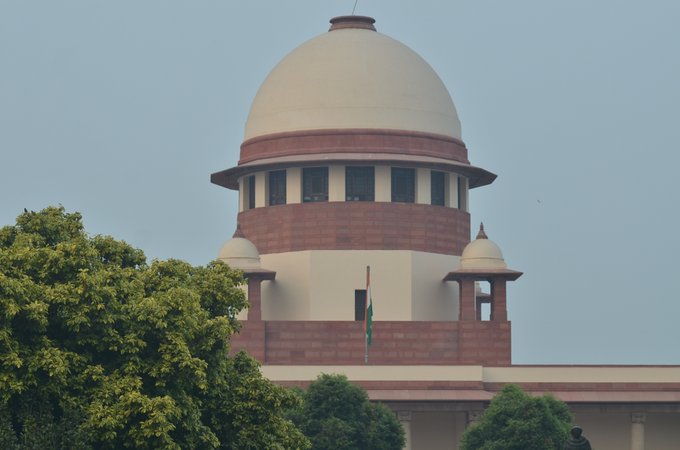Sushree Mohanty
The Supreme Court bench headed by Justice S.K. Kaul, continued to hear the Facebook India Vice President, Ajit Mohan’s plea challenging the summons issued to him by Delhi Assembly’s Committee on Peace and Harmony asking him to appear to look into the role of fake news behind the Delhi riots of February 2020.
In an interesting development, Senior Counsel Dr. Abhishek Manu Singhvi, appearing on behalf of Delhi Legislative Assembly informed the Supreme Court that “any senior, responsible officer from Facebook can come and appear before the Assembly and not necessarily Mr. Ajit Mohan”.
The premise of this explanation was framed in response to the contentions advanced by Mr. Harish Salve which claimed that the Committee on Peace and Harmony formed by the Delhi Legislative Assembly had explicitly named Mr. Ajit Mohan in order to compel his attendance and produce evidence on oath before the Committee.
Dr. Singhvi, responding to a question posed by Justice Kaul indicating Mr.Salve’s submissions that the Assembly cannot force Mr. Mohan to give evidence on oath as it did not send notice to Facebook for sending “any other alternative competent person“ who is accustomed with the facts of the case, stated, “I have never said that apart from Mr. Ajit Mohan anyone else cannot be recognized before us”.
Justice Kaul recorded the submission by Senior Counsel Singhvi and remarked his contentions. The bench took a break and decided to continue the hearing post-lunch hour.
With the reassembling of the bench, Dr. Singhvi argued on the aspects of the IT Act and claimed: “This is the lack of cause of action and a prior interpretation of IT Act.”
He further submitted that Indian parliamentary committees have the power to summon anyone to appear before them, including private persons and corporations, to give evidence.
He also took the reference of Article 239AA (3) (a) and relied on the NCT judgment claiming that “the executive power of Union in respect of NCT of Delhi is confined to the 3 matters in State List for which the legislative power of the Delhi Legislative Assembly has been excluded under Article 239-AA(3)(a).”
The case of Kalpana Mehta delivered by the Constitutional bench on compulsory evidence of witnesses was also referred along with 6 other judgements.
Elaborating on Article 239 AA, Dr. Singhvi argued that conjoint reading of Art. 239AA (3) (a) and (4) states that Delhi has the power to deal with all subjects but the three subjects, including the concurrent list.
The submissions came in response to a plea by Facebook India and its Vice President and Managing Director, Ajit Mohan challenging the September 10 and September 18 notices issued by the Committee which sought Mohan’s presence before the panel as part of its inquiry into the Delhi riots.
In the hearing that took place on February 2, 2021, the Central Government and Facebook told the Supreme Court that The Peace and Harmony Committee (Committee) constituted by the Delhi Legislative Assembly to probe the Delhi riots of February 2020 is unconstitutional and the matter was listed for subsequent hearing on February.3, 2021
However, during the proceeding Justice Dinesh Maheshwari attracted the bench’s attention to the internet disruption and technical issues near Tughlak road and the matter was adjourned for February 4, 2021.

